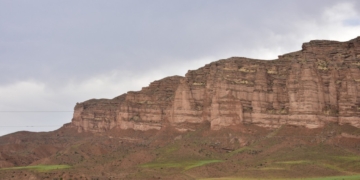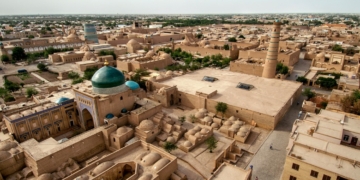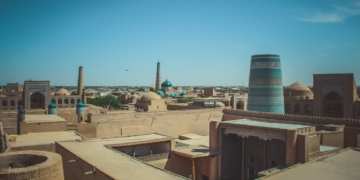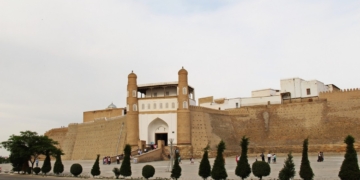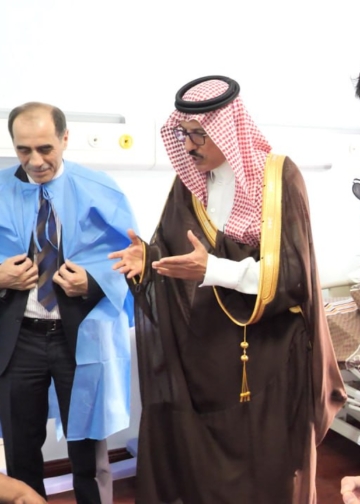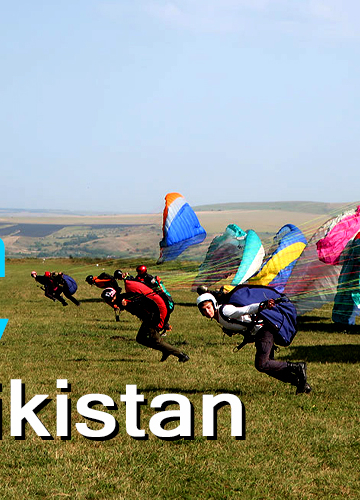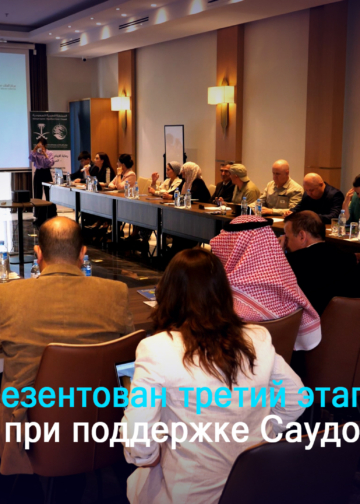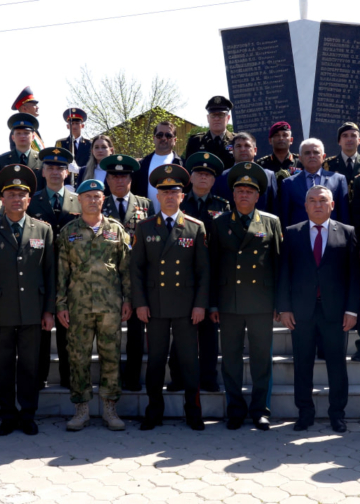id: 140628
date: 2/8/2008 16:43
refid: 08DUSHANBE219
origin: Embassy Dushanbe
classification: UNCLASSIFIED//FOR OFFICIAL USE ONLY
destination:
header:
VZCZCXRO3444
OO RUEHLN RUEHVK RUEHYG
DE RUEHDBU #0219/01 0391643
ZNR UUUUU ZZH
O 081643Z FEB 08
FM AMEMBASSY DUSHANBE
TO RUEHC/SECSTATE WASHDC IMMEDIATE 0196
INFO RUCNCIS/CIS COLLECTIVE
RUEHIL/AMEMBASSY ISLAMABAD 0049
RUEHBUL/AMEMBASSY KABUL 0065
RUEHLO/AMEMBASSY LONDON 0001
RUEHNE/AMEMBASSY NEW DELHI 0028
RUEHRL/AMEMBASSY BERLIN 0008
RUEHFR/AMEMBASSY PARIS 0001
RUEHBS/USEU BRUSSELS 0001
RUEHVEN/USMISSION USOSCE 0005
—————— header ends —————-
UNCLAS SECTION 01 OF 04 DUSHANBE 000219
SIPDIS
SENSITIVE
SIPDIS
DEPT FOR SCA/CEN
DEPT PASS USAID
E.O. 12958: N/A
TAGS: EAID, PGOV, ENRG, EFIN, EAGR, TI
SUBJECT: COMPLEX AND CHRONIC — TAJIKISTAN’S EMERGING
EMERGENCY
1. Summary: President Rahmon instructed his top foreign
policy and economic officials the week of Feb 4 to rally
donors and multilateral agencies to assist Tajikistan in
dealing with the increasingly evident shortfalls in energy
supplies. As of February 8, the
government has stopped short
of issuing a clear disaster declaration or approving the
World Bank’s proposed «Action Plan» to deal with the energy
situation. The energy crunch is
closely related to the
growing humanitarian concerns regarding food insecurity for
Tajikistan’s most vulnerable communities and the cotton
sector finance crisis. By early
next week, the Embassy
expects to receive a disaster declaration by the Tajik
Government, a «flash appeal» from the United Nations, and
specific proposals for humanitarian interventions by our
strongest non-governmental implementing partners (CARE, Save
the Children, and Mercy Corps).
Embassy requests the
Department and USAID stand ready to identify appropriate
funding for these humanitarian interventions, and reconsider
the discontinuation of the PL-480 Food For Peace program in
Tajikistan. (Action request para 12.)
End summary.
All the kings men …
———————
2. Beginning February 4, donor
country embassies and
multilateral missions began receiving invitations from top
Tajik officials to participate in a series of urgent meetings
to discuss critical energy shortages and related humanitarian
concerns facing Dushanbe and the rest of Tajikistan. The
Ministry of Health, Presidential Advisor for Economic
Affairs, and Foreign Minister called joint meetings to
present the case for foreign assistance to help Tajikistan
out of its current bind. In each
case, the government
officials glossed over the government’s own responsibility
for helping create the current state of affairs and stopped
short of issuing an official written disaster declaration
which is necessary for most donors to initiate emergency
assistance programs.
3. Presidential Advisor on
Economic Affairs Davlatov
convened donors on February 4 and again on February 7. He
told donors «not to panic» while he asked for donor
assistance to purchase emergency fuel supplies. He blamed
the energy emergency on the cold winter and said it was «not
the government’s fault.»
Davlatov asserted without
explanation that the government was «providing for the
population.» Nor would it
close the Tajik Aluminum Company
(TALCO) which is the largest electricity consumer in the
country, he said.
4. Foreign Minister Zarifi
convened donor ambassadors
February 7 to discuss the energy emergency but seemed not to
have all the facts or even a clear request. He either did
not know about or decided not to represent the elements of
the action plan then under discussion with the World Bank.
Zarifi avoided answering a direct question, «What is the
Government doing?» He
dismissed donor concerns voiced by
Ambassador about government priorities, saying the expensive
new presidential palace was being paid by «sponsors,» not
from the government’s budget. And
despite his seven years as
Tajik Ambassador to Vienna and Washington, he failed to
anticipate the donor ambassadors’ reaction to his explanation
that the palace and other show projects were important to
Qthat the palace and other show projects were important to
Tajikistan’s international prestige: More important that
providing basic services to its population?
5. In each of the government
meetings, multiple donors
stressed the need for a Tajik disaster declaration. Many
donors (including the United States) require such a
declaration in order to access emergency funding. In
addition, a disaster declaration would be an important
indicator that the Tajik government understands the genesis
of the current situation and has the political will to
address the longer term structural reforms necessary to dig
itself out of the energy, humanitarian, and financial hole it
has dug for itself. Instead of a
disaster declaration, a
rambling letter from Prime Minister Akilov was handed to
donors at the February 4 meeting.
The letter claimed success
for Tajik efforts to transform and stabilize the economy;
DUSHANBE 00000219 002 OF 004
noted the «critical occurrences caused by unusual frosts;»
estimated the impact on the economy at a whopping $850
million («a more precise assessment of damages will be
possible after the warming»); and expressed appreciation for
our continued support. The donors
unanimously and
immediately told Davlatov that this letter did not constitute
a disaster declaration. The
chairs of the Principals’ Group
of ambassadors and Donor Coordinating Committee sent a joint
letter to President Rahmon February 8 asking for a public
declaration. By the day’s end we
had seen an unsubstantiated
news article referring to a presidential «state of
emergency,» but had received no declaration from the
government.
Putting Humpty together again …
———————
6. In light of the government’s
fumbling over how to
proceed, the international donor community is taking action
to help Tajikistan help itself.
The UN agencies have taken
the lead on the humanitarian aspects of the current
situation, while the World Bank has tackled the energy
shortages. The donor community
has consistently insisted
that the government look at the energy shortages in light of
the humanitarian consequences for the population. We and
other donors have voiced growing concern over food
insecurity, including the impact on farm income of the cotton
sector financial crisis triggered by the government’s
foot-dragging on agriculture reform and misrepresentations to
the International Monetary Fund.
7. Embassy expects the United
Nations to release a «flash
appeal» by early next week.
The preliminary drafts of the
appeal draw heavily on rapid assessments conducted by
non-governmental organizations such as Save the Children,
which has been active in some of the most impoverished and
therefore most affected parts of Tajikistan, funded through
the USAID Food For Peace Development Assistance Program.
Save’s rapid assessment and corroborating findings from
others depict some disturbing early warning indicators.
Families are spending more on food but eating less. Coping
strategies are being stretched, with more remittances from
abroad spent on basic necessities, families selling off
livestock, depleting savings, and borrowing from
non-relatives. Local food markets
are carrying poorer
quality food at higher prices.
Illnesses are on the rise.
Fuel shortages have led to cutting of trees, which will have
long term consequences for recovery.
8. The World Bank has coached the
Ministry of Energy and
state-owned electricity utility, Barki Tojik, to develop an
«action plan» which will better manage remaining energy
resources to get through the next critical week and help
correct the structural flaws which would lead to a repeat of
this situation next year. At the
World Bank’s insistence,
the energy action plan will include a humanitarian element,
tying the response to the energy shortfall explicitly to the
humanitarian situation. Although
the World Bank had prepared
the draft action plan on Wednesday, as of Friday February 8,
the Tajik Government had not yet approved the plan or issued
it to the donors as a basis for assistance. Speculation for
the delay includes a continued reluctance to admit to the
government’s role in creating the emergency, and the
Qgovernment’s role in creating the emergency, and the
government trying to game the system to get even more cash
assistance from the donors than the World Bank plan
prescribed. Despite the delay
however, some elements of the
action plan are already being put into place, including
scheduled load-shedding in Dushanbe.
9. The «action plan»
developed by the World Bank with Tajik
Government energy officials includes the following elements:
— Tajikistan should pay off arrears and conclude diplomatic
efforts with neighboring countries to secure energy imports;
imports of gas from Uzbekistan, for example, should become
easier after the weather warms up as expected after February
13.
— Tajikistan should immediately implement a scheduled
load-shedding plan for Dushanbe (5 hours on/7 hours off) to
DUSHANBE 00000219 003 OF 004
conserve the remaining water resources at Nurek hydroelectric
station; this aspect of the plan was announced and partially
implemented the night of 7-8 February.
— Tajikistan should procure transformers and other equipment
required to repair the deteriorating electricity grid.
— Tajikistan should procure and import 30,000 tons of fuel
oil.
— In order to avoid a repeat of this situation next year,
Tajikistan should begin rationing electricity to Dushanbe by
October 1, build reserves of fuel oil, rehabilitate Nurek
hydroelectric station, and reform management of Barki Tojik.
10. The price tag for this
package is $20 million according
to World Bank, which has proposed the following breakdown for
contributions: $5 million from Barki Tojik accounts; $5
million from the state budget (Davlatov told us this would be
in the form of a loan from the Finance Ministry to Barki
Tojik); $5 million from the World Bank (Davlatov told us this
would come from Tajikistan’s current year IDA funds which had
been slated for agricultural reforms related to the «cotton
sector roadmap»); and $5 million from donors. The Tajik
authorities, smelling a potential donor bail-out from the
immediate crisis pushed the World Bank to raise the fuel oil
imports by another $6 million.
Embassy does not recommend we
use funds to help purchase these short-term fuel oil
supplies, believing the government’s pockets — should it put
aside spending on show projects — are deeper than the $5
million share proposed in the World Bank plan.
A Complex and Chronic Emergency
————————-
11. The critical energy shortages
now facing Tajikistan are
only the latest in a series of emerging problems. Food
insecurity caused by high inflation and reduced income for
the poorest Tajiks is compounded by an ongoing cotton sector
financing crisis, which threatens to collapse farm incomes
further by the next harvest season.
The fuel shortages
contribute to this general trend.
These are all chronic
problems reflecting long-standing structural shortcomings.
In each case, the international community has worked with the
Tajik Government to address the underlying structural
problems, and action plans or roadmaps have been agreed. But
despite some steps forward, the government generally remains
reluctant to admit responsibility and enact the necessary
action plans. U.S. assistance
programs should remain mostly
focused on these longer term reform efforts. USAID programs
dealing with land tenure and agricultural reform, for
example, will provide an important impetus for the rural
Tajik economy to shift from cotton to alternate crops which
promise more sustainable incomes for Tajik farmers. One of
our most effective programs to address the very humanitarian
problems highlighted by the emerging complex crisis is
USAID’s Food For Peace program which provides targeted rural
development assistance through a consortium of U.S.
non-governmental partners — Save the Children, CARE, and
Mercy Corps. Unfortunately, this
program is slated to end
after fiscal year 2008 — just as its successes are gaining
real traction, and just when Tajikistan’s rural poor need it
the most.
12. Action Requests: (A) Embassy requests the Department
Q12. Action Requests: (A) Embassy requests the Department
and USAID reconsider the decision to discontinue the Food For
Peace Development Assistance Program for Tajikistan after
2008. This program’s successes
are well documented in Food
For Peace reports and it is an important element in our
strategy to address the chronic humanitarian needs reflected
in the current crisis. (B)
Embassy requests Department and
USAID stand ready to review the project proposals we expect
to receive by the beginning of next week to provide
humanitarian assistance to the most affected communities in
Tajikistan. We also expect to
receive at about the same time
the long expected disaster declaration from the Tajik
Government and a UN flash appeal.
Once these are received,
Embassy will forward them to the Department and USAID for
review and determination on the best course for funding.
Post greatly appreciates Washington’s close attention to the
situation in Tajikistan over the past several months.
DUSHANBE 00000219 004 OF 004
JACOBSON
=======================CABLE ENDS============================
id: 140829
date: 2/11/2008 14:32
refid: 08DUSHANBE222
origin: Embassy Dushanbe
classification: CONFIDENTIAL
destination: 08STATE13637
header:
VZCZCXYZ0003
RR RUEHWEB
DE RUEHDBU #0222 0421432
ZNY CCCCC ZZH
R 111432Z FEB 08
FM AMEMBASSY DUSHANBE
TO RUEHC/SECSTATE WASHDC 0202
INFO RUEHAH/AMEMBASSY ASHGABAT 0030
RUEHTA/AMEMBASSY ASTANA 0027
RUEHEK/AMEMBASSY BISHKEK 0030
RUEHIL/AMEMBASSY ISLAMABAD 0053
RUEHBUL/AMEMBASSY KABUL 0069
RUEHMO/AMEMBASSY MOSCOW 0016
RUEHNT/AMEMBASSY TASHKENT 0026
RUEHBJ/AMEMBASSY BEIJING 0026
RUEHNE/AMEMBASSY NEW DELHI 0032
—————— header ends —————-
C O N F I D E N T I A L DUSHANBE 000222
SIPDIS
SIPDIS
DEPT FOR SCA/CEN
E.O. 12958: DECL: 02/11/2009
TAGS: PREL, PGOV, UN, UNMIK, YI, EU
SUBJECT: DEMARCHE DELIVERED TO TAJIKS ON KOSOVO INDEPENDENCE
REF: STATE 13637
Classified By: Tom Hushek, DCM; reasons 1.4(b), (c) and (d)
1. (C) PolOff delivered the demarche on Kosovo independence
as instructed to Husrab Noziri, the newly appointed Head of
American and European Affairs at the Tajik Foreign Ministry.
Noziri said he would discuss the issue with his superiors,
but he would not comment on Tajikistan,s position on Kosovo
generally.
2. (C) We do not anticipate that we will receive a
substantive response by February 12.
We expect Tajikistan to
side with the Russian Federation on the Kosovo issue, and we
doubt that Tajikistan will accede to our request.
3. (U) Dushanbe point of contact for follow-up information is
Greg Naarden, [email protected].
JACOBSON
=======================CABLE ENDS============================
id: 140834
date: 2/11/2008 14:46
refid: 08DUSHANBE223
origin: Embassy Dushanbe
classification: CONFIDENTIAL
destination: 08STATE13637
header:
VZCZCXYZ0001
RR RUEHWEB
DE RUEHDBU #0223 0421446
ZNY CCCCC ZZH
R 111446Z FEB 08
FM AMEMBASSY DUSHANBE
TO RUEHC/SECSTATE WASHDC 0203
INFO RUEHEK/AMEMBASSY BISHKEK 0031
RUEHNT/AMEMBASSY TASHKENT 0027
RUEHAH/AMEMBASSY ASHGABAT 0031
RUEHTA/AMEMBASSY ASTANA 0028
RUEHNE/AMEMBASSY NEW DELHI 0033
RUEHIL/AMEMBASSY ISLAMABAD 0054
RUEHMO/AMEMBASSY MOSCOW 0017
RUEHBUL/AMEMBASSY KABUL 0070
RUEHBJ/AMEMBASSY BEIJING 0027
—————— header ends —————-
C O N F I D E N T I A L DUSHANBE 000223
SIPDIS
SIPDIS
DEPT FOR SCA/CEN
E.O. 12958: DECL: 02/11/2018
TAGS: PARM, PREL, TI
SUBJECT: DEMARCHE DELIVERED ON FOLLOW-UP INFORMATION
REGARDING FLIGHT OF PROLIFERATION CONCERN FROM DPRK TO SYRIA
REF: STATE 013637
Classified By: Tom Hushek, DCM; reasons 1.4(b), (c) and (d)
1. (S) PolOff delivered the non-paper on Air Koryo flight
JS-621 as instructed to Husrab Noziri, the newly appointed
Head of American and European Affairs of the Tajik Foreign
Ministry. We passed a Russian
version of the non-paper to
ensure that there would be no miscommunication. Noziri said
he understood the importance of the information provided.
2. (S) Noziri said that he would pass the information on to
his superiors. We do not
anticipate that we will receive a
substantive response by February 12, but do expect that
Tajikistan will follow through and accede to our requests.
3. (U) Dushanbe point of contact for follow-up information is
Greg Naarden, [email protected].
JACOBSON
=======================CABLE ENDS============================
id: 140907
date: 2/12/2008 4:05
refid: 08DUSHANBE224
origin: Embassy Dushanbe
classification: SECRET
destination: 08STATE13637
header:
VZCZCXYZ0001
RR RUEHWEB
DE RUEHDBU #0224 0430405
ZNY SSSSS ZZH
R 120405Z FEB 08
FM AMEMBASSY DUSHANBE
TO RUEHC/SECSTATE WASHDC 0204
INFO RUCNCIS/CIS COLLECTIVE
RUEHBJ/AMEMBASSY BEIJING 0028
RUEHIL/AMEMBASSY ISLAMABAD 0055
RUEHBUL/AMEMBASSY KABUL 0071
RUEHNE/AMEMBASSY NEW DELHI 0034
—————— header ends —————-
S E C R E T DUSHANBE 000224
SIPDIS
SIPDIS
DEPT FOR SCA/CEN
E.O. 12958: DECL: 02/11/2018
TAGS: PARM, PREL, TI
SUBJECT: DEMARCHE DELIVERED ON FOLLOW-UP INFORMATION
REGARDING FLIGHT OF PROLIFERATION CONCERN FROM DPRK TO SYRIA
REF: STATE 013637
Classified By: Tom Hushek, DCM; reasons 1.4(b), (c) and (d)
1. (U) This message is being resent to correct the
classification.
2. (S) PolOff delivered the non-paper on Air Koryo flight
JS-621 as instructed to Husrab Noziri, the newly appointed
Head of American and European Affairs of the Tajik Foreign
Ministry. We passed a Russian
version of the non-paper to
ensure that there would be no miscommunication. Noziri said
he understood the importance of the information provided.
3. (S) Noziri said that he would pass the information on to
his superiors. We do not
anticipate that we will receive
substantive response by February 12, but do expect that
Tajikistan will follow through and accede to our requests.
4. (U) Dushanbe point of contact for follow-up information is
Greg Naarden, [email protected].
JACOBSON
=======================CABLE ENDS============================
id: 141178
date: 2/13/2008 11:38
refid: 08DUSHANBE227
origin: Embassy Dushanbe
classification: UNCLASSIFIED
destination:
header:
VZCZCXRO6825
RR RUEHAST
DE RUEHDBU #0227/01 0441138
ZNR UUUUU ZZH
R 131138Z FEB 08
FM AMEMBASSY DUSHANBE
TO RUEHC/SECSTATE WASHDC 0207
INFO RUEHAH/AMEMBASSY ASHGABAT 0033
RUEHTA/AMEMBASSY ASTANA 0030
RUEHEK/AMEMBASSY BISHKEK 0033
RUEHBUL/AMEMBASSY KABUL 0073
RUEHNT/AMEMBASSY TASHKENT 0029
RUEHAST/USOFFICE ALMATY 0008
—————— header ends —————-
UNCLAS SECTION 01 OF 02 DUSHANBE 000227
SIPDIS
SIPDIS
FOR SCA/CACEN
DEPT PASS USAID (FFP-PNovick, OFDA-RAndrew, AConvery)
ALMATY FOR USAID
E.O. 12958: N/A
TAGS: EAID, TI
SUBJECT: Ambassador Jacobson
Declares Humanitarian Disaster in
Tajikistan
1. Summary and action request: Ambassador Tracey Ann Jacobson
declares a humanitarian disaster in Tajikistan due to severe food
insecurity, exacerbated by a nationwide energy crisis and extreme
winter weather. Ambassador and
regional mission request that
DCHA/OFDA immediately commit USD 50,000 to respond with food and
non-food assistance for distribution to the most vulnerable
population, and consider further emergency assistance of USD 931,340
through USAID Food For Peace implementing partners CARE, Save the
Children, and Mercy Corps. End
summary and action request.
2. Tajikistan remains the poorest of the former Soviet republics and
still suffers from the after affects of a bloody civil war that
ended in 1997. However, recent
shocks to the country are resulting
in increased suffering and loss of life that will continue without
swift international assistance.
In addition to the food security
crisis, Tajikistan is in the midst of serious financial woes that
threaten the economic future of the country, particularly the
agriculture sector which remains the engine of the economy. An
energy crisis also grips the country during one of the coldest
winters in the country’s history.
Most of the country currently is
without any power, while some regions have an hour or two a day.
The capital is currently under rationing that permits five hours of
electricity in the morning, and five hours in the evening, although
some households receive much less.
A fuel shortage also threatens
the little heat that some homes still receive.
3. Disturbing reports from USAID Food For Peace (FFP) implementers
which began in early December indicated that the already tenuous
food security situation was deteriorating further. A recently
concluded rapid food assessment in two different districts in rural
Tajikistan by Save the Children found that households had only
between 3 days and one month of food stocks available to get them
through the winter. Households
generally maintain stocks that will
last them until at least the end of April. Households are selling
their livestock to raise money.
Additionally, the quality of food
is declining, and people are eating less although spending more.
Children were visibly sick in almost all households visited during
the assessment, and many households experienced a death in the
family over the last few months related to food, cold, and lack of
medical care.
4. The food security cluster of Tajikistan, a group of humanitarian
organizations led by the World Food Program (WFP), concluded in its
situation report of February 11, 2008, that a food security
emergency currently exists in Tajikistan and, moreover, there is a
reasonable likelihood that the situation will further deteriorate.
The report estimates that more than 550,000 people are seriously
affected by the emergency, and at least 260,000 will require food
and cash assistance to survive the next three months. Surveys by
food security cluster members found that food and fuel supplies are
almost completely exhausted, and high food prices combined with poor
harvests in 2007 are forcing families to sell off assets for food
and medicine. Migration increased
in December and homes are being
abandoned. The energy crisis
further resulted in the closing of
many hospitals, clinics, and schools due to the cold and unhealthy
Qmany hospitals, clinics, and schools due to the cold and unhealthy
conditions. In an effort to
alleviate life threatening conditions,
the food security cluster proposes an immediate response of food and
non-food aid, and cash disbursement programs.
5. The government of Tajikistan response to date: the GOTI called
several meetings over the last several weeks to brief donors and aid
organizations on the various crises, including meetings organized by
the Committee on Emergency Situations of Tajikistan. Correspondence
received from the Prime Minister on February 4, 2008, describes the
situation as «critical» as a result of the unusual cold
temperatures, shortage of water and energy, and the resulting impact
on food supply and security. The
GOTI requests assistance from
donor countries in order to increase the food supply to the
population, as well as energy for the agricultural and industrial
sectors. The government had not
issued a formal disaster
declaration as of February 13, but findings by government agencies,
UN and non-governmental organizations confirm the necessity of
immediate assistance for food and non-food commodities, fuel,
generators, and other assistance.
6. The Mission proposes to coordinate its response with the United
Nations, which will submit its final Flash Appeal as early as this
week, to provide relief and support to the GOTI and to the affected
population. The UN Flash Appeal
proposes to assist Tajikistan with
emergency food, increase water supplies, assist hospitals and
critical care health facilities, and provide non-food aid to the
DUSHANBE 00000227 002 OF 002
most vulnerable population. The
total funding required to implement
the UN Flash Appeal is close to USD 26.5 million.
7. The mission proposes that USG assistance take the form of
emergency food and non-food aid distributed and coordinated through
USAID FFP implementing partners CARE, Save the Children, and Mercy
Corps. The consortium requests,
and the mission supports, emergency
funding for Tajikistan in the amount of USD 981,340. The request
explains that the rural population in Tajikistan is left with few
remaining coping strategies for mitigating the increased level of
food insecurity. This consortium
of humanitarian organizations is
well positioned to respond to the food emergency in Tajikistan and
implement emergency relief activities, with large coverage in most
regions of the country. The
proposed emergency response includes
both food and non-food items, direct cash disbursements, fuel,
heating appliances, and clothing and bedding.
8. Mission will keep addressees updated as additional information
becomes available.
Jacobson
=======================CABLE ENDS============================
id: 141181
date: 2/13/2008 11:44
refid: 08TASHKENT199
origin: Embassy Tashkent
classification: CONFIDENTIAL
destination: 08TASHKENT114
header:
VZCZCXYZ0006
RR RUEHWEB
DE RUEHNT #0199/01 0441144
ZNY CCCCC ZZH
R 131144Z FEB 08
FM AMEMBASSY TASHKENT
TO RUEHC/SECSTATE WASHDC 9228
INFO RUEHAH/AMEMBASSY ASHGABAT 3746
RUEHTA/AMEMBASSY ASTANA 9956
RUEHBJ/AMEMBASSY BEIJING 1072
RUEHEK/AMEMBASSY BISHKEK 4360
RUEHLM/AMEMBASSY COLOMBO 0216
RUEHKA/AMEMBASSY DHAKA 0209
RUEHDBU/AMEMBASSY DUSHANBE 0238
RUEHIL/AMEMBASSY ISLAMABAD 3945
RUEHBUL/AMEMBASSY KABUL 2213
RUEHMO/AMEMBASSY MOSCOW 7306
RUEHNE/AMEMBASSY NEW DELHI 0889
RUEHBS/USEU BRUSSELS
RUEHVEN/USMISSION USOSCE 2335
RHEFDIA/DIA WASHDC
RHEHNSC/NSC WASHINGTON DC
RUEAIIA/CIA WASHDC
—————— header ends —————-
C O N F I D E N T I A L TASHKENT 000199
SIPDIS
SIPDIS
SCA/CEN FOR BRIAN RORAFF
E.O. 12958: DECL: 02/13/2018
TAGS: PREL, PGOV, EMIN, ENRG, ECON, SNAR, RS, AF, TI, ZK, UZ
SUBJECT: RUSSIAN AMBASSADOR ON PUTIN-KARIMOV MEETING
REF: TASHKENT 114
Classified By: Poloff Tim Buckley for reasons 1.4 (B) and (D)
1. (C) Summary: On February 11
the Ambassador called on
Russian Ambassador Farit Muhametshin to discuss President
Karimov’s February 5-6 trip to Moscow, including his meeting
with Russian President Vladimir Putin.
Muhametshin described
the trip as «nothing extraordinary» and said all meetings and
agreements were «absolutely open.» In his meetings with
Putin and other officials, Karimov discussed security,
energy, trade, economic development, and even space
cooperation.
2. (C) Muhametshin expressed Russia’s support for the Afghan
government of Hamid Karzai, noting a need «to fundamentally
support the Afghan economy and government in the face of
narco and terror threats.»
On Tajikistan, the Russian envoy
noted Russia «completely agrees» with Uzbek calls for
multilateral approval for major hydropower projects that
affect downstream countries. He
also lamented outlandish
displays of wealth by the Tajik elite that draw attention to
disparities. As with a recent
meeting between emboffs and
Chinese diplomats, the Russians were congenial and
appreciated the Ambassador’s effort to consult with them on
Central Asia issues on which we have common ground. End
summary.
«Nothing Extraordinary»
————————
3. (C) On February 11 the Ambassador called on his Russian
counterpart Muhametshin to get a report on Karimov’s recent
visit to Moscow. Muhametshin was
joined by Counselor
Vladimir Andriyanov and Second Secretary Kirill Belikov.
Despite earlier indications that Putin might have been
planning to visit Tashkent, Muhametshin confirmed that the
planned venue for the recent meeting was always Moscow. The
Russian envoy said the meeting was an «opportunity for both
Presidents to examine the relationship» between the two
countries and look for ways to build on their partnership.
4. (C) Muhametshin described the visit as «nothing
extraordinary» and the documents that were signed as «quite
typical.» Muhametshin
described the agreements as laying the
groundwork for «how we intend to cooperate with each other,»
and emphasized they were all «absolutely open.» He noted
that the press conference at the conclusion of the visit was
short, underscoring the routine nature of the visit.
Muhametshin added that, in addition to Putin, Karimov met
with officials at the Ministry of Foreign Affairs, where the
two sides signed an agreement about «planned joint activity
in the framework of international organizations,» and at the
Ministry of Defense. He made a
point of noting that Foreign
Minister Sergei Lavrov was in Armenia at the time and
unavailable to meet with Karimov.
However, Karimov did meet
with Deputy Prime Minister Sergei Borisovich Ivanov, whom
Muhametshin described as a driving force in «developing
relationships between peoples.»
«First Meeting in Third Term»
——————————
5. (C) Muhametshin noted that this meeting was the first
meeting between the two leaders «since Karimov started his
third term» after winning the election in December.
(Comment: The Uzbeks glossed over
the issue in the run-up to
elections and cited technicalities to support Karimov’s
eligibility to be on the ballot; however the Government of
Uzbekistan does not refer to a third term since the Uzbek
Constitution stipulates a two-term limit. Muhametshin’s word
choice indicates the Russians are not concerned about
justifying the constitutionality of Karimov’s current
mandate. End comment.)
Energy
——
6. (C) Muhametshin noted that Russia and Uzbekistan have «big
energy projects connecting our countries,» most notably ones
involving Gazprom and Lukoil’s interests. The two Presidents
«further developed contacts along these lines,» Muhametshin
continued, «including the industrialization of gas assets.»
He said there were indeed negotiations on the price of gas
between the countries, but he emphasized this was worked out
before the New Year, and included discussions of what
Uzbekistan’s internal consumption requirements for gas were
before deciding what quantity to sell.
Muhametshin also
reminded us that everyone pays the market rate for gas now,
with no separate pricing for Commonwealth of Independent
States (CIS) members.
7. (C) According to Muhametshin, Lukoil has a new agreement
to extract gas from deposits in the Bukhara Region (also
reported in the press on February 12), and Russian companies
have invested USD 50 million in the Karakalpakstan Region of
northwest Uzbekistan. In general,
Muhametshin confirmed
Russian companies are interested «in more new sources» of
energy. He also mentioned ongoing
Chinese and Malaysian
involvement in Uzbekistan energy extraction.
8. (C) The topic of atomic energy also came up, and
Muhametshin noted that the Russians and Uzbeks have a joint
enterprise on the extraction of uranium in Uzbekistan. He
also suggested that Uzbekistan could be invited to
participate in more nuclear energy activities in Russia
(within UN frameworks) because it has uranium resources and a
capable nuclear center of its own.
(Comment: The Government
of Uzbekistan has already committed to U.S. joint venture
Nukem and has relatively little room to cut additional deals.
Muhametshin mentioned a figure of
2,000 tons of uranium
extraction for a joint venture, which is the same quantity
promised to the American joint venture.
We have already
heard reports Nukem is nervous about the Uzbeks coming
through with the promised quantity, and it would be nothing
new if the Uzbeks were also dealing with a Russian entity.
End comment.)
Aircraft Production
——————-
9. (C) Muhametshin described Russia’s strong interest in the
Tapoich aircraft production factory in Uzbekistan. He said
that while the IL-114 mid-range propeller-driven passenger
plane is assembled in Uzbekistan, up to 80 percent of the
component parts originate at factories within the Russian
Federation. The Ambassador also
noted a U.S. interest, as
American firms also have been involved in supplying
components to the Tapoich factory.
This seemed to surprise
Muhametshin, who acknowledged that the factory’s success is
«an area of mutual interest» for the U.S., Russia, and
Uzbekistan. He predicted
long-term success at the factory
«due to modern technology at the plant,» as well as
attractive fuel-efficiency that should contribute to strong
consumer demand for the IL-114 aircraft.
Economic Development
———————
10. (C) One of the documents signed by Putin and Karimov
pertains to economic development, which Muhametshin described
as «a five-year plan of cooperation.» The elements of the
deal were worked out last year, and Muhametshin stressed that
Russia «considers this a very important part of the bilateral
relationship.» He
specifically mentioned automobiles, rail
container cars, transportation equipment, and agricultural
machinery (tractors and combines) as key items the countries
expect to sell to each other. He
added that «this type of
state-level cooperation — with concrete ideas — will
benefit the private sector companies» who wish to do
business. Muhametshin also
mentioned that Karimov and Putin
reached an agreement about space cooperation, particularly
pertaining to Uzbek interests in satellites.
11. (C) Muhametshin also said there were also conversations
in Moscow with Karimov about the need to promote small and
mid-sized businesses here instead of just focusing on
big-ticket commodities like natural gas and cotton.
Muhametshin noted that this would help generate jobs in small
cities and rural areas throughout Uzbekistan that sorely need
investment. He also made the
point that the cumulative
impact of successful small businesses could generate as much
income as one of the staple commodities Uzbekistan relies on
so much. (Note: Karimov delivered a major speech to his
Council of Ministers shortly after his return from Russia
focusing on economic reform, including the investment
climate, with practically the entire newspaper devoted to it.
We view this as a signal that
Uzbekistan wants to encourage
more investment. Interestingly,
while the Ministry of
Foreign Affairs was eager to find out about the U.S. and UK
reaction, the Russians were not asked what they thought,
indicating the speech was tailored for the West. End
comment.)
On Afghanistan
—————
12. (C) Muhametshin said that Afghanistan was discussed
during the Putin-Karimov meeting last week, and cited the
drugs and terrorism originating in Afghanistan as «an area of
mutual concern and threat» for all affected countries (he
specifically mentioned Pakistan as well). He added «from the
Russian point of view there need to be optimal solutions. To
a maximum extent, we need to help the economy and Government
of Afghanistan in the fight against narco-aggression.» This
reflects a policy distinction between Russia and Uzbekistan,
as Karimov favors removal of President Karzai and has bluntly
expressed this to recent visitors such as CENTCOM Commander
Admiral William Fallon (reftel).
Muhametshin acknowledged
that, «slowly» (but surely), Afghanistan is developing and
that Russia is definitely interested in Afghanistan’s
progress.
On Tajikistan
————-
13. (C) Muhametshin emphatically confirmed that Uzbek
officials worry a lot about the balance between hydropower
generation in Tajikistan and the impact on Uzbekistan,
particularly concerning agricultural output. «And they worry
for good reason,» he explained, as river levels are already
demonstrably lower in summer and agricultural output has
already been affected. He
described this as «a real
concern,» and noted the main Uzbek goal is to ensure that
«all future projects should be done according to
international expertise and not just unilateral Tajik
actions.» Muhametshin also
mentioned concern that Russian
companies cannot participate in Tajikistan’s projects after a
decision by the Government of Tajikistan last year. Russia
«completely agrees with the Uzbeks» on this issue, according
to Muhametshin, and said tradeoffs in energy and agricultural
output must be balanced per the «agreement of all affected
parties.»
14. (C) Muhametshin also lamented that President Rakhmon and
his cronies are making outlandish displays of their wealth
which draw attention to the disparities between members of
the ruling elite and impoverished masses. The Russian envoy
said this was especially troubling given the harsh winter
that is causing hardship for ordinary Tajiks. In addition to
expensive palace-like homes, Muhametshin noted that one of
President Rakhmon’s brothers spent one hundred thousand
dollars on a Rolls-Royce used just for inauguration day,
which he said «is not good» and «is too different from
real
life there.» Nonetheless,
Muhametshin noted Russia is
mobilizing relief for Tajiks afflicted by the severe winter
weather.
15. (C) Russia also remains concerned about the security
situation in the country, and Muhametshin mentioned the Tajik
Colonel who was recently killed by separatist groups in the
mountainous south-central region of Garm. He said this is
similar to incidents years ago when the security situation
was worse, and so creates «worries for us and you.»
Comment
——-
16. (C) One foreign ambassador has asked the pertinent
question: why did Karimov visit
Moscow so close to the end
of Putin’s term? We’re not sure,
but the answer may lie in
Karimov’s perpetual quest to finely calibrate the balance
between Russian, Chinese, and Western influence in Central
Asia. Having welcomed CENTCOM
Commander Admiral Fallon to
Tashkent on January 24, and knowing the visit would fuel —
as it has — speculation about the return of U.S. bases to
Uzbekistan, Karimov may have wanted to signal to all
concerned that any rapprochement with the U.S. will not be at
the expense of continued close relations with Russia.
Karimov has had a good relationship with Putin; his ties to
Medvedyev appear more tenuous (Muhametshin says the two did
not meet on this visit) and Karimov may have decided to try
to lock in his gains with Russia while he can. As one
diplomat here joked recently, there is probably more talk
about Uzbek «regime change» in Moscow than there is in the
West.
NORLAND























